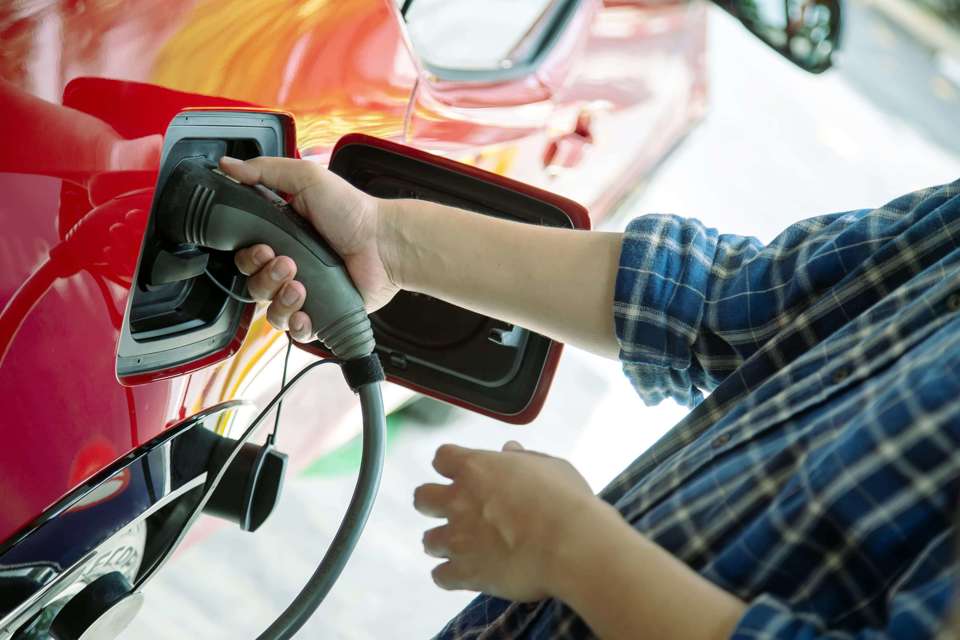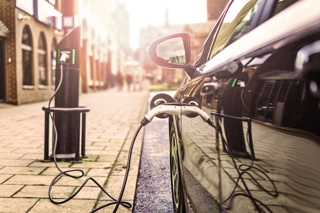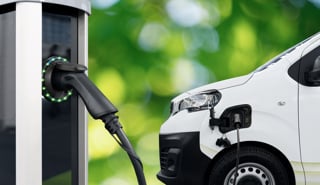An “alarming” lack of investment and awareness by local authorities regarding the country’s transition to electric vehicles (EVs) has been unveiled in a new report.
Telematics specialist Geotab found that almost three quarters of local authorities in the UK have electrified less than 10% of their fleets and the majority have fewer than 50 chargers in place.
The research, titled ‘Destination EV – Accelerating Local Authority EV Transition’, was commissioned in partnership with Political Intelligence and conducted between January and April 2022. It sought to understand how local authorities are making the switch to electric, in light of the government’s mandated ‘end of sale’ of petrol and diesel cars by 2030.
Almost half of local authorities surveyed have yet to set a date for completing the transition of their fleets to electric vehicles, with 74% still operating fleets comprising more than 90% petrol and diesel-powered Internal Combustion Engine (ICE) vehicles. The average electrification rate reported among all local authorities is 4.2%.
When asked for reasoning for not setting appropriate target dates, respondents cited that the key barriers include the high cost and limited availability for specific types of EVs, such as Heavy Goods Vehicles (HGVs) and buses, along with limited resources to dedicate to support such a transition.
Geotab has previously demonstrated that nearly 40% of UK fleet vehicles could go electric today and still save money, according to its Electric Vehicle Suitability Assessment (EVSA).
Respondents also noted concerns around charging, with the majority reporting fewer than 50 charge points in place across public, home, and depot locations.
“The findings of this report demonstrate a worrying lack of investment by local authorities across England ahead of the switch to electric at the end of this decade,” said David Savage, vice president UK & Ireland at Geotab.
“27% of the UK’s emissions are attributed to transport, and fleets account for over 50% of new vehicles on the road. Public sector fleet operators are in a position to lead this strategic shift by example—but they need the necessary investment, funding, and tools to support the transition to 100% electric,” he added.
Despite the issues and challenges raised in the report, its findings have concluded that the transition has clearly begun, with 80% of local authorities reporting at least one EV in their fleets—and despite the low electrification rate across all surveyed local authorities, Leeds City Council, Kingston, West Sussex County Council, and Winchester City Council all reported 20% or higher electrification amongst their fleets.
Nottingham City Council is leading the way with 34.9% of its fleet currently electrified and aiming to become completely zero-emission by 2028. It is the first local council to operate an electric HGV and bus, with a total of 20 expected to be operational in the coming years.
The report concludes that there is a need for better guidance and facilitation of best practice sharing amongst local authorities and government, together with a concrete target in place to focus transition progress.
It also states that charging infrastructure remains a “significant barrier” including availability and compatibility with differing electric vehicle charging standards. Overall, Geotab said the challenges cited by local authorities present a “clear opportunity” to improve data access and understanding of current fleet usage to better inform a fuller EV transition.






















Login to comment
Comments
No comments have been made yet.